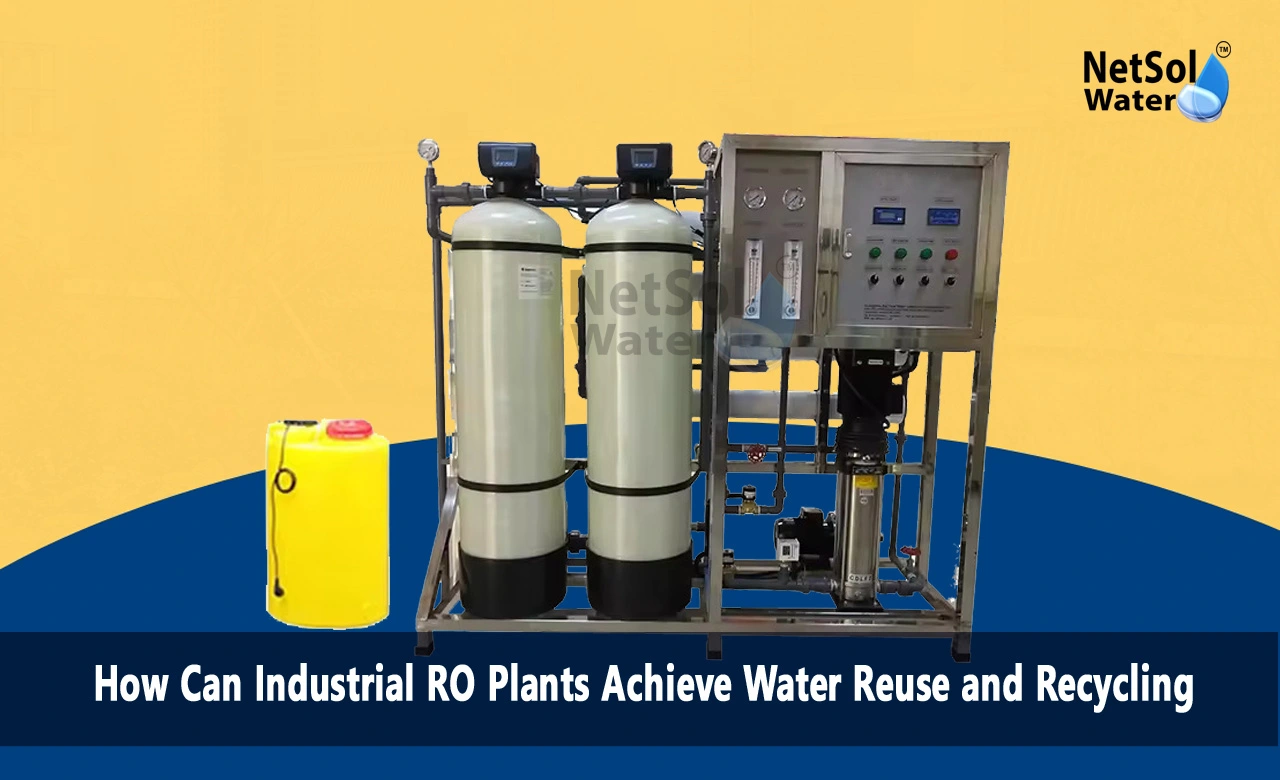How Can Industrial RO Plants Achieve Water Reuse and Recycling?
Water is an invaluable resource for industrial operations across sectors like power, chemicals, food & beverage, pharmaceuticals and many others. However, rapid industrialisation combined with climate change impacts is intensifying water stress around the world. Companies are realising that sustainable manufacturing requires radical improvements in water use efficiency through comprehensive reuse and recycling strategies. Industrial RO plants play an important role in unlocking such circular water management when combined with complementary treatment systems.
The Role of RO in Water Recycling
Reverse osmosis-based purification allows industries to treat and reuse a wide range of impaired water streams on-site that were previously discharged as effluent. This could include:
• Process water streams with high TDS/salinity
• Blow down or reject streams from cooling towers
• Spent brine streams from previous treatment stages
• Rinse water and washing streams from equipment
• Contaminated surface runoff from plant yards
Through RO membranes, up to 95% of this wastewater can be recovered as purified process-grade feed for operations. The concentrated reject brine can also be further treated through evaporation/crystallisation for near-zero liquid discharge (ZLD). Compared to continuously consuming freshwater, integrating an RO system reduces overall water intake while minimising effluent volumes requiring off-site disposal.
Benefits of Industrial Water Reuse/Recycling
Implementing comprehensive reuse and recycling driven by RO systems brings industries significant economic and environmental advantages:
• Water Supply Resilience - Reduces dependence on increasingly scarce freshwater sources by reusing available wastewater on-site
• Operational Cost Savings - Recycled water costs much less than freshwater procurement, effluent treatment and discharge fees combined
• Lower Liquid Discharge Volumes - Decreases effluent disposal costs and risks of environmental violations/fees
• Sustainability and Social Benefits - Conserves natural resources, improves social license to operate
Achieving Optimal Recycling with RO Plants
However, realising maximum recycling requires integrating the RO plant with complementary pre-treatment and post-treatment systems based on the specific wastewater characteristics. Some key aspects include:
Robust Pretreatment
RO membranes are susceptible to fouling and scaling from suspended solids, organics, microbes, hardness and other contaminants. Deploying appropriate pretreatment stages like multimedia filtration, ultrafiltration, softening, etc., protects membranes for reliable long-term performance. Advanced oxidation and chlorine dioxide systems ensure biofouling control.
Brine Treatment and Recovery
The concentrated reject brine carries metals, salts, and organics and must be treated before discharge. Systems like mechanical vapour compression evaporators followed by crystallisers can achieve near ZLD by recovering up to 95% of the brine as distillate for recycling.
Process Redesign
Practices like counter-current rinsing, air-agitated tank washers, automated clean-in-place units, and low-liquid ring vacuum pumps minimise wastewater generation volumes while improving concentrate stream quality for better RO recovery.
Smart Process Monitoring
Digital instrumentation, automation and IoT analytics optimise system performance by tracking membrane health, fouling indicators, scale potential, pressure drops, etc. In-built dosing systems ensure efficient membrane cleaning and anti-scalant use.
Skilled Manpower
On-site operator training centres and apprenticeship programs build specialised technical expertise for monitoring routine operations, troubleshooting and maintaining critical equipment across pretreatment, RO and brine recovery trains for reliability.
Conclusion:
The complete approach ensures plants achieve maximum recovery of secondary wastewater for reuse while minimising liquid discharge. With the increasing convergence of water risks and manufacturing competitiveness - companies must invest in industrial RO plants integrated with complementary systems as part of their water stewardship commitments and circular economy transitions.
To explore customised commercial RO plants, Industrial RO plants, ETP or STP solutions for your needs in your areas and nearby regions, contact Netsol Water at:
Phone: +91-965-060-8473, Email: enquiry@netsolwater.com



